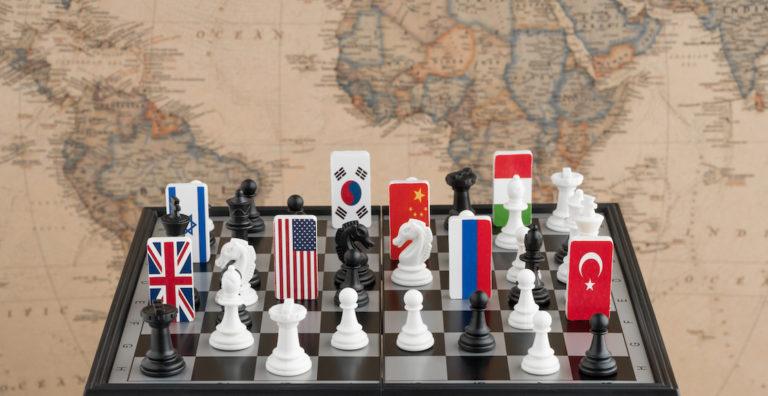I have been invited to comment on Frank Vibert's Comity: Multilateralism in the New Cold War, which is a very timely book that speaks to important issues of the day. He draws impressively on a range of literatures—International Law and International Relations most notably—which he brings to bear in a very original analysis of contemporary challenges to international rulemaking. In what follows I offer a few brief observations on some of the more political dimensions of the analysis.
Character or interest: what matters behind global governance?
Frank tells us that ‘character matters’, by which he means that the character of a political regime—whether it is democratic or autocratic—has implications for international rulemaking, or what some would call ‘global governance’. Among other things, he argues, it has implications for the degree of cooperation one can expect among major and, for that matter, minor parties in the international order. The emphasis on character challenges a fundamental tenet of the Realist paradigm in International Relations, which privileges power in explaining the behaviour of states.
I think Frank is right to assert that character matters in international relations. Were it not the case, the democratic peace thesis—that democracies are reluctant to engage in armed conflict with other democracies—would have no foundation, to give just one example. But is character of paramount importance? What about interests? Even where the character of states may be at odds, interests may converge, especially where cooperation holds out the prospect of mitigating common threats, as the historical record suggests has been the case, for instance, with arms control agreements. And even where the character of states may be congruent, interests may diverge. Think back to France and the United States in the run up to the US-led invasion of Iraq in 2003, where these two democracies clashed. Surprisingly, interests do not figure prominently in Frank’s analysis.
Some flaws of a normative approach
It is the normative aspect of character that leads Frank to invoke ‘comity’ as the organising concept of his book and as the vehicle for the formulation and adoption of international rules underpinned by democratic values, first by like-minded states and then by ever-wider circles of states beyond the like-minded group. However, it is not entirely clear to me what the mechanism of transmission is. We used to talk a lot more than we do today about the European Union as a normative power, reflecting both the fact that its power in conventional military terms was limited but also that it was capable of setting norms of democracy, rule of law, human rights and fundamental freedoms, not through the physical imposition of standards but through non-coercive means—emulation and conditionality in particular. That is still the case; however, questions have been raised about just how exportable the EU model is or, if not the model, how ‘appropriate’ some of its norms are for other cultures and societies, calling into question their universality. Even close to home, within the EU itself, we are seeing serious backpedalling—in Poland and in Hungary notably. In short, ‘like-mindedness’ is not always easy to export, let alone to sustain at home.
While the differences between democratic and autocratic states can be significant—bearing in mind that differentiation is more accurately spectral, not binary—it is important not to overstate those differences.
While the differences between democratic and autocratic states can be significant—bearing in mind that differentiation is more accurately spectral, not binary—it is important not to overstate those differences. In the knowledge economy at the centre of Frank’s analysis, we should not forget that democratic governments have not only been concerned with the integrity and probity of the data-driven world for the benefit of its citizens, as Frank observes; they have also been guilty of violating the privacy of its citizens in the interest of exerting control over them. Think of what Edward Snowden’s whistleblowing uncovered about the surveillance practices of the US government. The distinction between democratic and autocratic is a meaningful one. However, it is important to be mindful of the numerous ways in which ‘really existing democracy’ sometimes belies the very values that are meant to underpin it.
There is a lot of insightful analysis in the book about the kinds of bodies, actors and techniques of rulemaking associated with like-minded democratic groups: how these groups are typically organized; how they manage the risk of conflict with other rule-makers; and the sources of their legitimacy for rulemaking. The analysis is well grounded and precise. The groups that Frank has in mind are all groups of long-standing. It is worth noting that like-minded (or common-interested) groups can also be temporary associations. I have in mind the informal groups of states that are established from time to time in support of the UN Secretariat—for instance, the various ‘Friends of the UN Secretary-General’ made up of regional states working in support of efforts to consolidate peace in war-ravaged states in their backyards.
As I said at the outset, this is a very timely book. However critical some of my remarks, nothing I have said should detract from the value of the book for its contribution to the current debate about managing global challenges.


